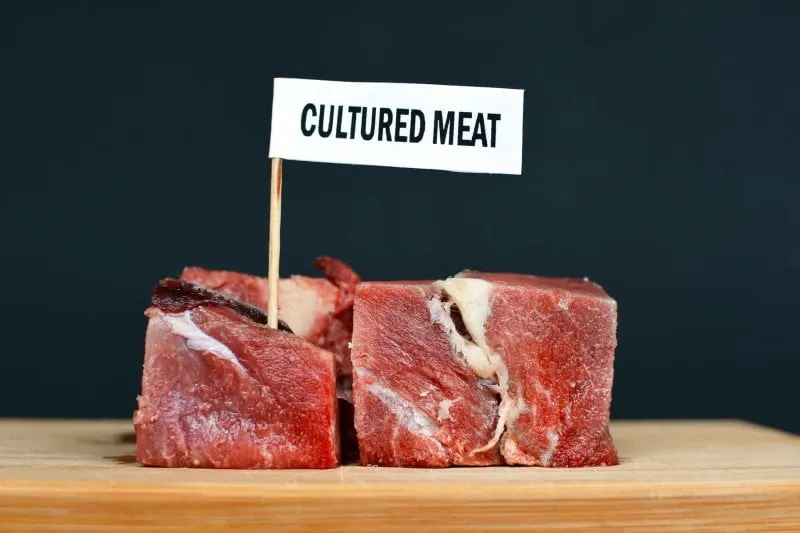Can the clean meat revolution address agriculture’s ecological challenges?
Can the clean meat revolution address agriculture’s ecological challenges?


For a cutting-edge biotechnology, cellular agriculture is actually a fairly straightforward process. It begins with stem cells, usually harvested from live animals via biopsy. The cells are placed in a bioreactor – a temperature- and pressure-controlled aseptic steel vat filled with a nutrient-dense growth medium that is basically a broth of sugars and proteins. Under these conditions, the cells proliferate and differentiate to form tissue.
…
The potential benefits of this technology are manifold. Most analyses of these processes suggest they would use far less land and water, and have a smaller carbon footprint, than beef and dairy. If powered with clean energy – a big but not implausible if – they could have less environmental impact than chicken and pork. It would prevent the torture and killing of billions of creatures every year, and also greatly reduce the risk of diseases spreading from animals to humans.
But if cellular agriculture is going to improve on the system it is displacing, then the critics are right: it needs to grow in a way that doesn’t externalise the real costs of production on to workers, consumers and the environment.
Read the original post

 | Videos | More... |

Video: Nuclear energy will destroy us? Global warming is an existential threat? Chemicals are massacring bees? Donate to the Green Industrial Complex!
 | Bees & Pollinators | More... |

GLP podcast: Science journalism is a mess. Here’s how to fix it

Mosquito massacre: Can we safely tackle malaria with a CRISPR gene drive?

Are we facing an ‘Insect Apocalypse’ caused by ‘intensive, industrial’ farming and agricultural chemicals? The media say yes; Science says ‘no’
 | Infographics | More... |

Infographic: Global regulatory and health research agencies on whether glyphosate causes cancer
 | GMO FAQs | More... |

Why is there controversy over GMO foods but not GMO drugs?

How are GMOs labeled around the world?

How does genetic engineering differ from conventional breeding?
 | GLP Profiles | More... |

Alex Jones: Right-wing conspiracy theorist stokes fear of GMOs, pesticides to sell ‘health supplements’




 Viewpoint — Fact checking MAHA mythmakers: How wellness influencers and RFK, Jr. undermine American science and health
Viewpoint — Fact checking MAHA mythmakers: How wellness influencers and RFK, Jr. undermine American science and health Viewpoint: Video — Big Solar is gobbling up productive agricultural land and hurting farmers yet providing little energy or sustainabilty gains
Viewpoint: Video — Big Solar is gobbling up productive agricultural land and hurting farmers yet providing little energy or sustainabilty gains Trust issues: What happens when therapists use ChatGPT?
Trust issues: What happens when therapists use ChatGPT? Fighting deforestation with CO2: Biotechnology breakthrough creates sustainable palm oil alternative for cosmetics
Fighting deforestation with CO2: Biotechnology breakthrough creates sustainable palm oil alternative for cosmetics California, Washington, Oregon forge immunization alliance to safeguard vaccine access against federal undermining
California, Washington, Oregon forge immunization alliance to safeguard vaccine access against federal undermining 30-year-old tomato line shows genetic resistance to devastating virus
30-year-old tomato line shows genetic resistance to devastating virus The free-range chicken dilemma: Better for birds, but with substantial costs
The free-range chicken dilemma: Better for birds, but with substantial costs ‘You have to treat the brain first’: Rethinking chronic pain with Sanjay Gupta
‘You have to treat the brain first’: Rethinking chronic pain with Sanjay Gupta
